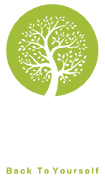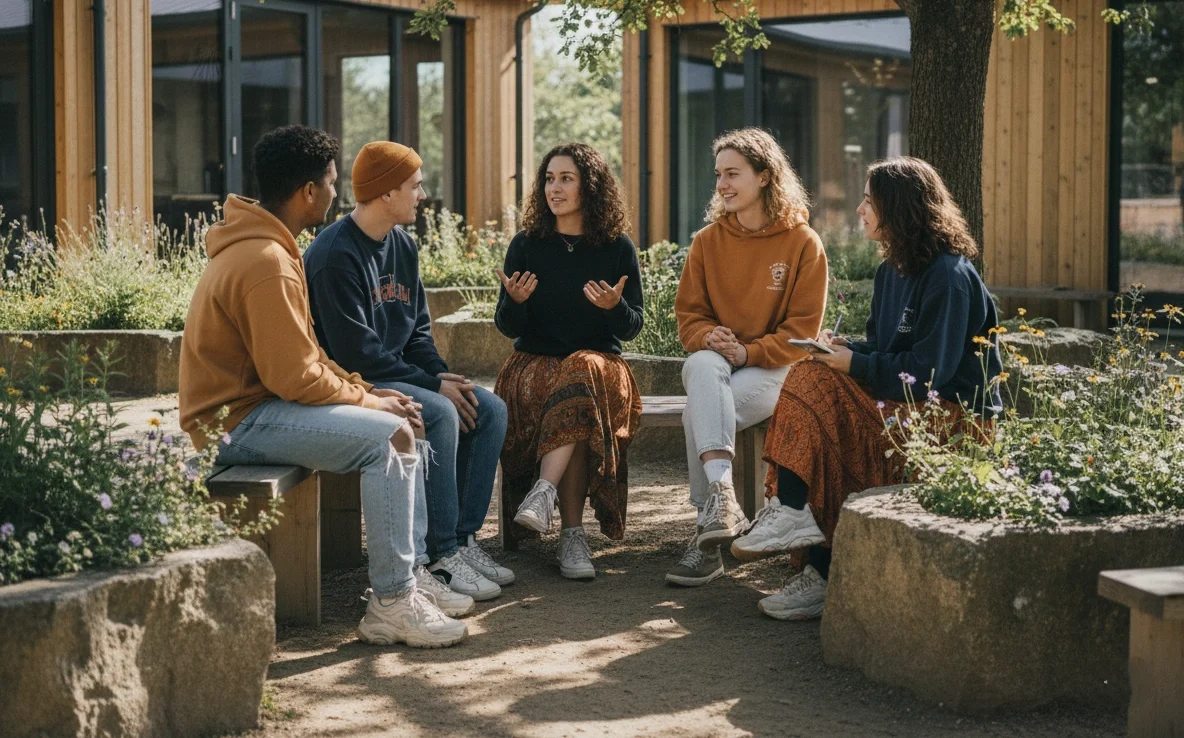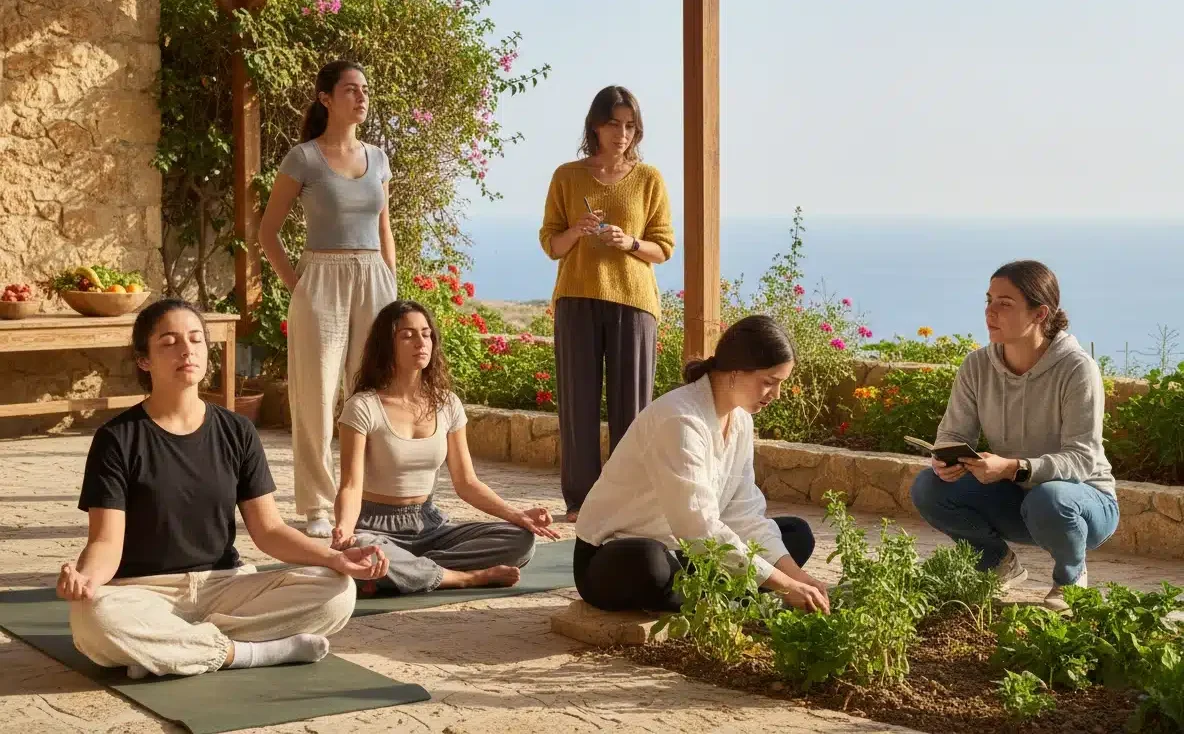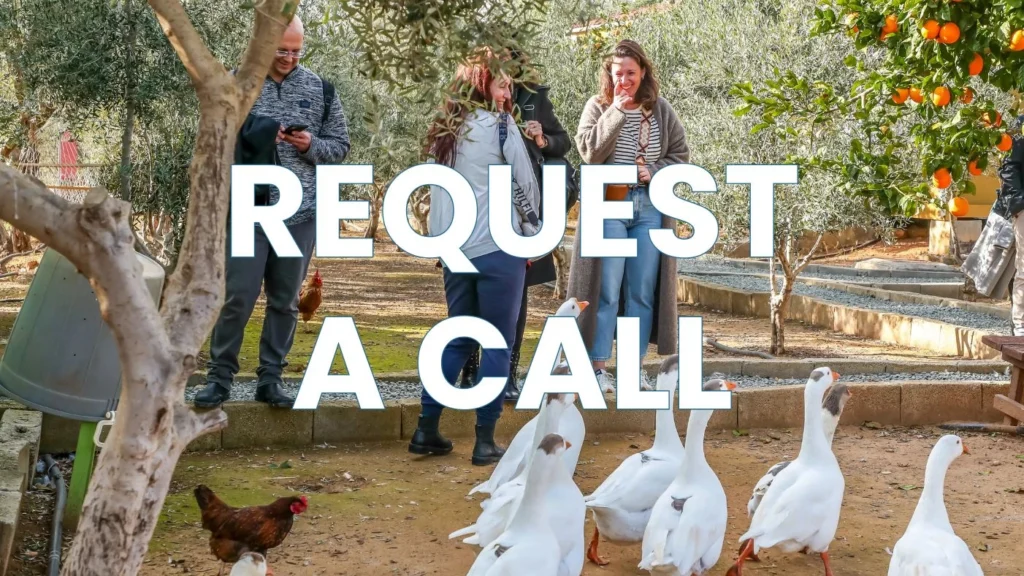Nutrition and Healthy Living in Young Adult Recovery
05 min read

Introduction: Rebuilding the Body to Heal the Mind
Addiction affects more than mental health—it can take a significant toll on the body. Poor nutrition, disrupted sleep, and a lack of healthy routines are common in active addiction, leaving young adults depleted physically and emotionally.
Recovery offers a unique opportunity to restore the body’s balance. At Holina Village in Cyprus, nutrition and healthy living are woven into the therapeutic process, helping residents rebuild physical strength, mental clarity, and emotional stability.
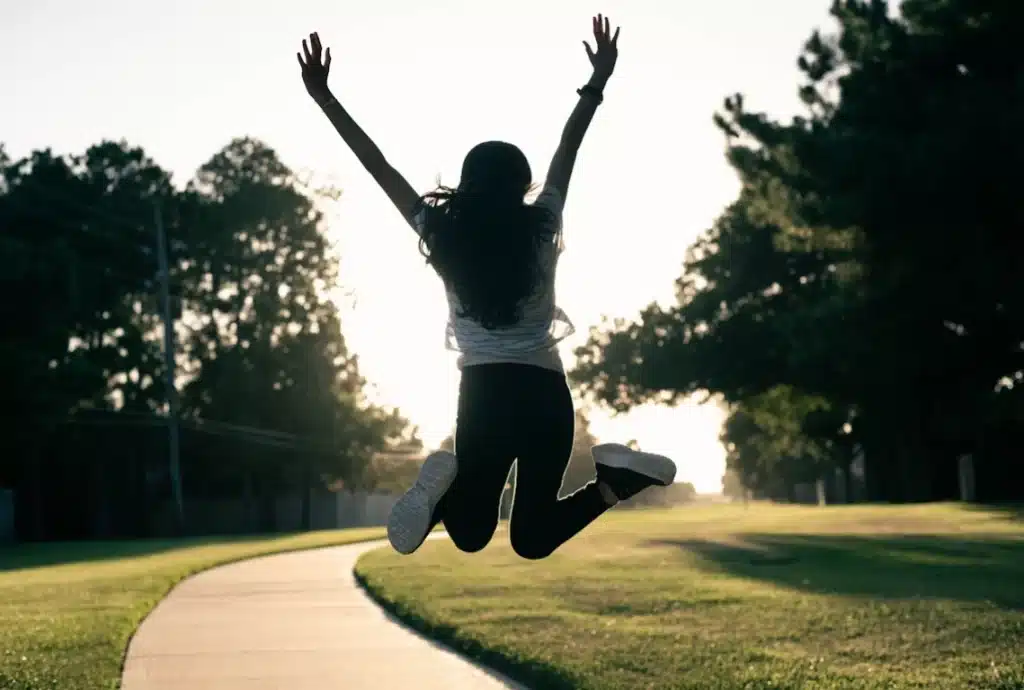
Why Nutrition Is Vital in Recovery
Repairing Deficiencies
Substance misuse can deplete essential vitamins and minerals, impacting mood, cognition, and energy.
Stabilizing Mood and Energy
Balanced meals help regulate blood sugar, preventing mood swings and fatigue that can trigger cravings.
Supporting Brain Health
Nutrients like omega-3 fatty acids, B vitamins, and antioxidants aid in repairing neurological pathways affected by substance use.

Nutrition Programs at Holina Village
Fresh, Balanced Meals
Residents enjoy daily meals prepared with fresh, whole ingredients designed to promote steady energy and mental clarity.
Education on Healthy Eating
Workshops teach residents how to plan, shop for, and prepare nutritious meals—a life skill essential for independent living.
Special Dietary Support
Individual meal plans can accommodate vegetarian, vegan, and allergy-friendly options without compromising nutritional value.
Healthy Living Beyond Nutrition
Physical Activity
Sports, gym sessions, yoga, and outdoor recreation keep the body active and reduce stress.
Sleep Hygiene
Structured routines help residents reset their sleep cycles, improving mood regulation and focus.
Mindfulness and Self-Care
Daily practices encourage residents to care for their bodies and minds as a unified whole.

How Nutrition Supports Emotional Recovery
What we eat directly impacts how we feel. Stable blood sugar levels can prevent irritability and anxiety, while nutrient-rich diets support serotonin production, enhancing emotional well-being. Over time, healthy eating helps residents develop a deeper respect for their bodies and overall health.
Overcoming Challenges to Healthy Living
Many young adults in recovery are unfamiliar with meal planning or cooking. Holina Village bridges this gap through hands-on workshops, guided practice, and easy-to-follow recipes that residents can take home after treatment.
Long-Term Benefits of a Healthy Lifestyle
By the time residents leave Holina Village, they have the tools to:
Maintain a balanced diet on a budget
Create fitness routines they enjoy
Use nutrition and wellness as relapse-prevention strategies
Conclusion: Fueling Recovery from the Inside Out
Nutrition and healthy living aren’t extras—they are foundations for sustained recovery. At Holina Village in Cyprus, residents learn that caring for their bodies is a form of self-respect and a crucial part of long-term success.
📞 Contact Holina Village: +66 (0) 626 418 369
🌐 Learn more: holinacyprus.com
Frequently Asked Questions (FAQs)
1. Why is nutrition important in addiction recovery?
Proper nutrition restores physical health, supports brain function, and helps stabilize mood and energy levels.
2. Does Holina Village provide specialized diets?
Yes. Meal plans can be tailored for dietary preferences or medical needs.
3. Is cooking part of the recovery program?
Yes. Residents participate in cooking workshops to build life skills for independent living.
4. Can healthy eating help prevent relapse?
Yes. Balanced nutrition reduces fatigue, mood swings, and stress—common relapse triggers.
5. Does Holina Village combine nutrition with exercise?
Absolutely. Physical activity is paired with healthy eating to maximize physical and mental benefits.
6. How do residents continue healthy living after rehab?
They leave with personalized meal plans, recipes, and wellness routines to maintain at home.
